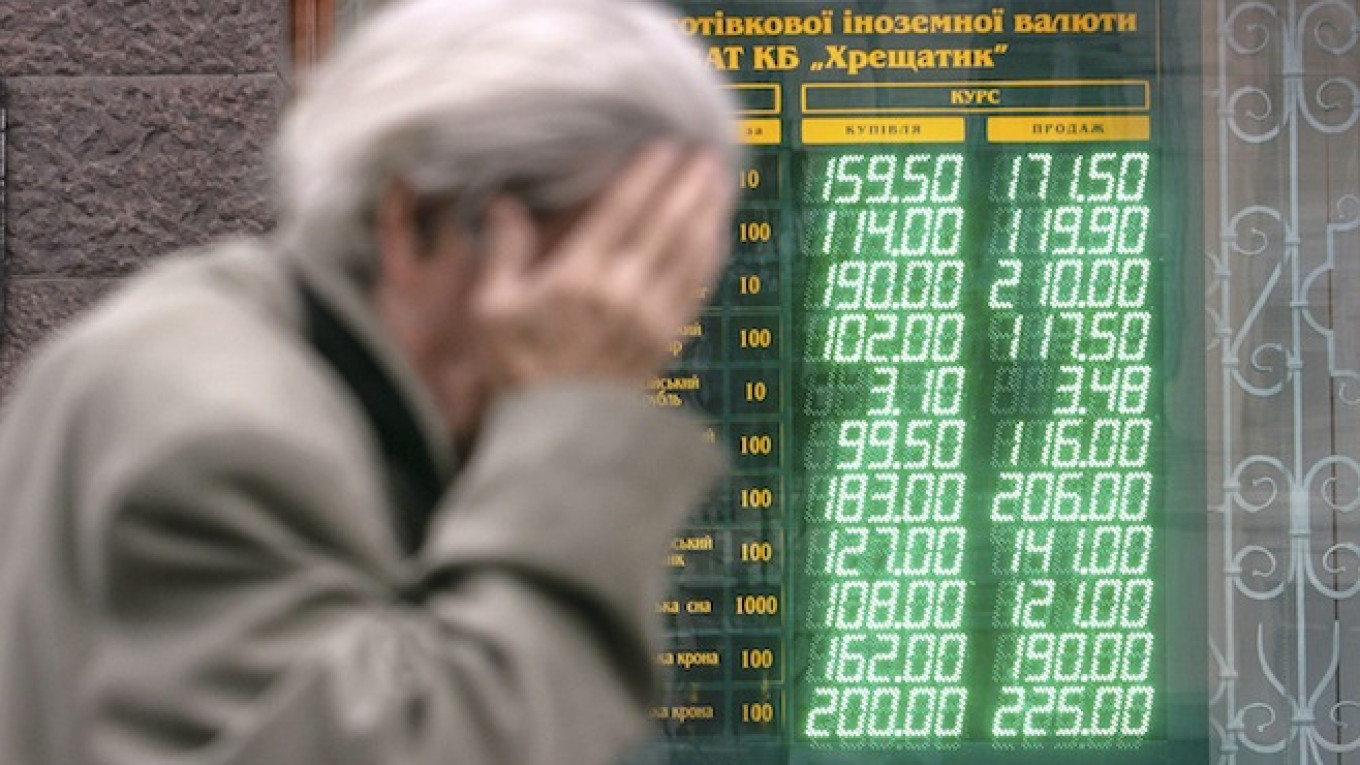Russia's further incursions into eastern Ukraine would have serious macroeconomic consequences, destabilizing banks and crimping Ukraine's national output, the central bank governor said.
Many of Ukraine's biggest factories and some of its agricultural production lie in the east, where pro-Russian separatists have taken up arms and occupied government buildings.
"The main risk (to the economy) has a political-occupational character," National Bank of Ukraine Governor Stepan Kubiv said Sunday in an interview on the sidelines of the meeting between the International Monetary Fund, or IMF, and the World Bank in Washington.
"Because if after Crimea, it will be Lugansk, Slaviansk, Donetsk, Kharkhiv, and other small towns, then we immediately talk about a considerable amount of liquidity," he said, listing other towns in Ukraine.
Kubiv also said Ukraine was prepared to pay Russia about $386 per 1,000 cubic meters of gas, below the amount Moscow had demanded. But he emphasized that Ukraine will pay all its bills.
"Ukraine has always paid to creditors on time, based on market and contractual prices," Kubiv said. "All the debts we owe, we will pay, and there is no other option."
Moscow, which alienated Western powers by annexing Ukraine's Crimean peninsula, this month raised the price it charges Kiev for gas by 80 percent and said it awaits $2.2 billion in unpaid bills. Ukraine imports more than half its gas needs from Russia.
Ukraine is set to receive a two-year, $14 billion to $18 billion IMF loan package by early May in exchange for implementing tough economic reforms such as raising energy prices and floating its currency. Other donors such as the World Bank, U.S., EU and Japan have also promised support.
Kubiv declined to specify the government's current level of reserves, simply saying it was "sufficient," and the government would reaffirm the exact amount by May, after an audit.
"Economic reforms and investment activity, plus the IMF's two-year program (and other bilateral contributions) means we will have enough resources to complete market reforms," Kubiv said, adding that afterwards Ukraine plans to return to finance itself in market. "We will be OK."
He said Ukraine had already started working on floating its hryvnia currency, and plans to move to full inflation-targeting within 12 months. While inflation is expected to hit double digits this year, it should fall to a range of 3 percent to 5 percent after 2015, Kubiv said.
Despite the turmoil with Russia, Kubiv said Russia's Central Bank chief Elvira Nabiullina called him to discuss bank capitalization issues, including Ukrainian banks that hold Russian capital.
Kubiv also hinted at possible changes to Ukraine's banking system, where the IMF has required a stress test of 37 banks.
"One hundred and eighty-one banks for the Ukrainian market is too many," he said. He declined to say how many would be optimal, saying the political situation was changing too rapidly to make forecasts.
"The estimate of political risks (for banks) keeps changing every day," he said.
A Message from The Moscow Times:
Dear readers,
We are facing unprecedented challenges. Russia's Prosecutor General's Office has designated The Moscow Times as an "undesirable" organization, criminalizing our work and putting our staff at risk of prosecution. This follows our earlier unjust labeling as a "foreign agent."
These actions are direct attempts to silence independent journalism in Russia. The authorities claim our work "discredits the decisions of the Russian leadership." We see things differently: we strive to provide accurate, unbiased reporting on Russia.
We, the journalists of The Moscow Times, refuse to be silenced. But to continue our work, we need your help.
Your support, no matter how small, makes a world of difference. If you can, please support us monthly starting from just $2. It's quick to set up, and every contribution makes a significant impact.
By supporting The Moscow Times, you're defending open, independent journalism in the face of repression. Thank you for standing with us.
Remind me later.






